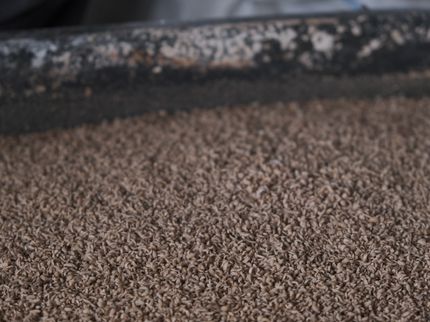Food security: Irradiation and essential oil vapors for cereal treatment
A combined treatment of irradiation and essential oil vapors could effectively eliminate insects, bacteria and mold in stored grains
A combined treatment of irradiation and essential oil vapors could effectively destroy insects, bacteria and mold in stored grains. A team from the Institut national de la recherche scientifique (INRS), led by Professor Monique Lacroix, has demonstrated the effect of this process on insects affecting rice. The study was published in the Radiation Physics and Chemistry journal.

INRS Professor Monique Lacroix is an expert in sciences applied to food, such as irradiation.
hristian Fleury (INRS)
Microorganisms and insects are the main enemies of stored grains. Currently, the food industry uses fumigants to destroy them. However, these compounds, which evaporate or decompose into gases into air or water, are threatening human health and the environment. "When grain is fumigated, a small amount of gas is absorbed by the grain and released into the atmosphere. For food irradiation, the treatment is physical. If "new molecules" are produced, they are no different than those produced by normal processes applied to food, such as heat," says Professor Monique Lacroix.
Food irradiation refers to the exposure of food to ionizing radiation, including gamma rays and X-rays. The research team has determined the effectiveness of these two processes, both with and without essential oils.
Increasing radiosensitivity
The study aimed at testing whether the energy level of the irradiation source with variable flow rate could affect the dose (or treatment time) needed to kill 90% of insects or molds. The research team showed that gamma rays were more effective against insects than X-rays. In addition, a higher dose rate with gamma rays proved to be more effective than a low dose rate. Moreover, by adding eucalyptus and tea tree essential oils, the effectiveness significantly improved. "With the addition of essential oils, the dose needed was four to six times smaller depending on gamma dose rates. In fact, oils increase the sensitivity of insects to radiation" says Professor Lacroix.
Similar results can be seen for bacteria and moulds, even though they are more resistant to radiation. According to a previous study, microorganisms' sensitivity to irradiation increased by about 1.5 times with the addition of thyme and oregano essential oils.
The team also conducted experiments with essential oil vapors diffused in 5 kg bags of rice. In the future, the team would like to test the process in an industrial setting, through partnership with companies.
Most read news
Organizations
Other news from the department science

Get the food & beverage industry in your inbox
By submitting this form you agree that LUMITOS AG will send you the newsletter(s) selected above by email. Your data will not be passed on to third parties. Your data will be stored and processed in accordance with our data protection regulations. LUMITOS may contact you by email for the purpose of advertising or market and opinion surveys. You can revoke your consent at any time without giving reasons to LUMITOS AG, Ernst-Augustin-Str. 2, 12489 Berlin, Germany or by e-mail at revoke@lumitos.com with effect for the future. In addition, each email contains a link to unsubscribe from the corresponding newsletter.

























































